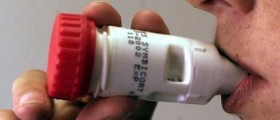
Augmentin is a combination medication, which contains twoantibiotics – amoxicillin and clavulanate. This combination drug is prescribedfor many infections, especially for the skin, sinuses, ears, lower respiratorytract and urinary tract infections caused by bacteria.
Augmentin can be found in several different forms on themarket, including extended release tablets (labeled as XR), chewable tablets, suspensionand ES-600 suspension.
Allergic Reactions
All penicillin medications, including these drugs, are knownfor the potential of causing severe allergic reactions. You will also find thatstatement in the prescription from your doctor and you must pay close attentionto all body reaction when you start using Augmentin.
Swelling in the mouth or throat, hives and shortness of breathmay indicate the allergic reaction to Augmentin, and you should call for urgentmedical help if you experience any of these symptoms. Other symptoms of allergyto this drug may be the confusion, rash, itchiness, skin changes (redness,swelling, peeling…) and sometimes yellowing of the skin and the eyes. Abdominalpains and cramps, abnormal bleeding and bruising, serious diarrhea, blood inthe stool, vaginal irritation and discharge and in some cases even seizures canalso be provoked by the use of Augmentin and demand immediate medicalassistance.
Serious allergies to this medication are usually treatedwith epinephrine injections, intravenous corticosteroids and oxygen mask.
Adverse Effects
Patients that have been prescribed Augmentin have reported nauseaand vomiting as the most common side effects after the use of this combinationantibiotic. These people also often complained about rashes and diarrhea. Womenusing Augmentin noticed more frequent vaginal yeast infections.
A small percent of people treated with this medication havenoticed headaches associated exclusively with Augmentin. Also, there are a fewof the Augmentin patients that reported gasses and abdominal pains as unpleasantside effects.
People using Augmentin are also exposed to somewhat higherrisk of developing yeast infections (especially oral), decrease in the numberof red blood cells, anemia, changes in teeth color (brown or black) and blood inthe urine, colitis and itchiness. There were reported cases of anxiety andmental confusion, linked to the use of Augmentin.
A person using this drug may potentially suffer from a veryserious case of diarrhea. Uncontrolled growth of bacterium Clostridiumdifficile may cause fatal diarrhea in these patients.
Overdose of Augmentin may also cause unwanted effects andsome additional side effects, including hyperactivity and kidney failure. The conditionis treated with extra fluids but may also require dialysis.
Who Shouldn’t Use Augmentin
People allergic to penicillin should stay away from thismedication as well. Patients that had jaundice in the past are also advised toavoid this medication.
Patients with problems in the functioning of the livershould be very careful when using Augmentin, since there is a chance that thisdrug may worsen their medical condition.

















Your thoughts on this
Loading...